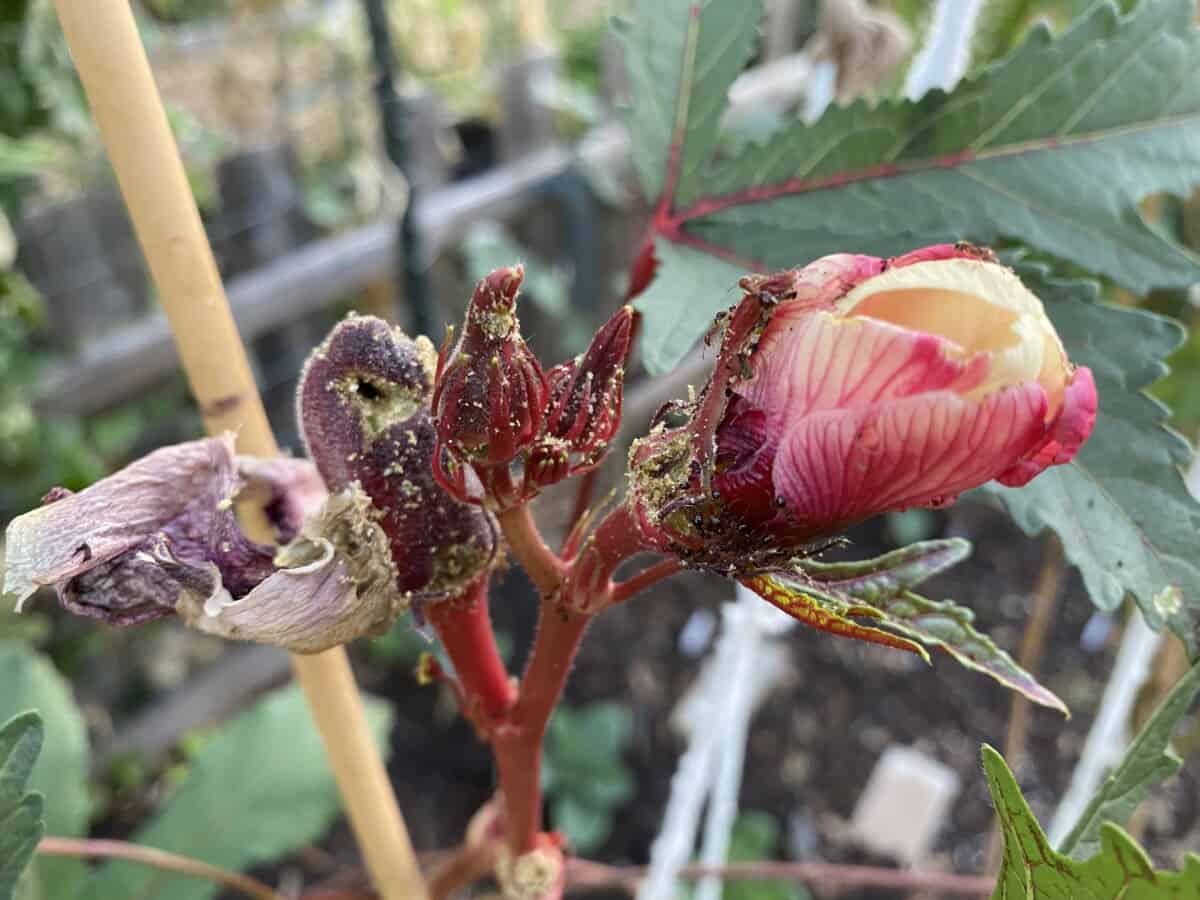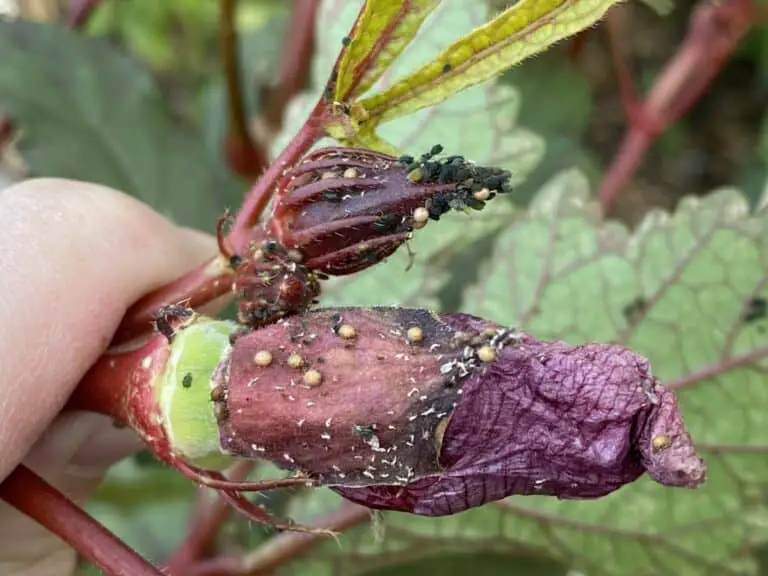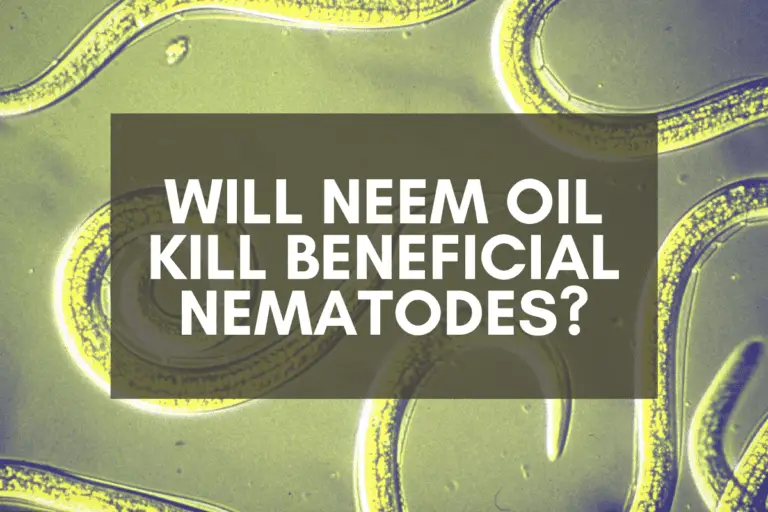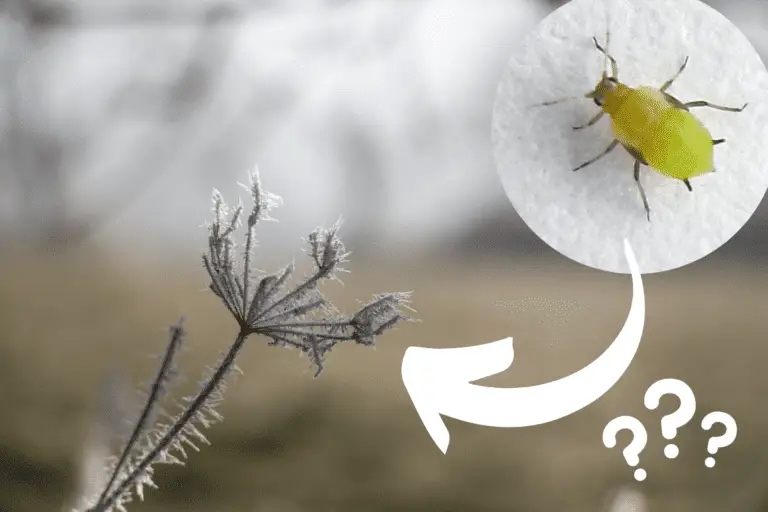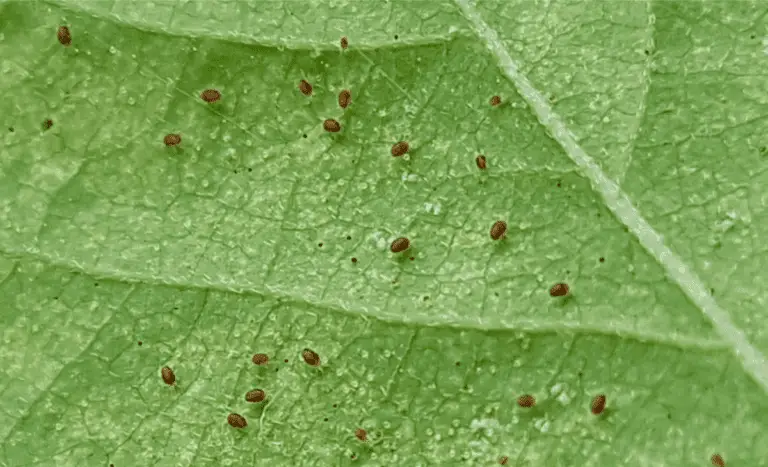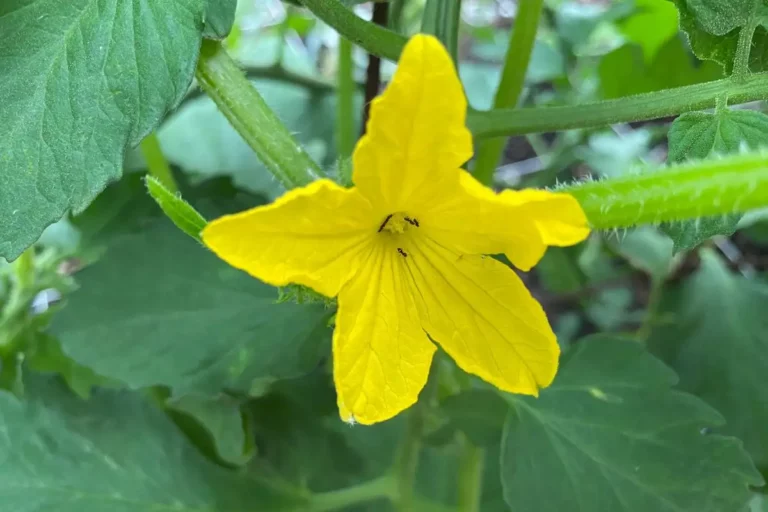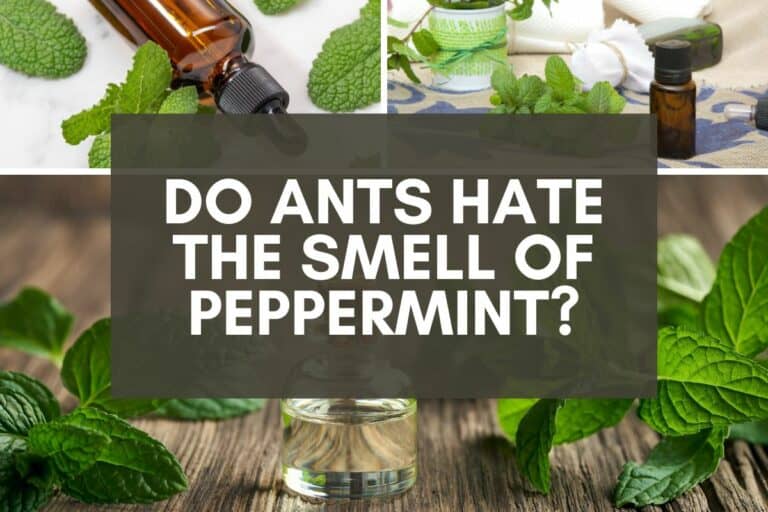Should I Throw Away a Plant with Aphids? Things to Consider
Have you ever gone out to your garden and realized that one of your plants was covered in aphids?
Maybe you missed the early signs of infestation, or maybe you left town for a trip or vacation and came back to an aphid-infested plant.
Whatever the reason, if you’ve got a plant with aphids, you’re probably trying to figure out if you should keep the plant or throw it away.
Plants with minor aphid infestations should not be thrown away. They can easily recover and thrive. Plants with moderate aphid damage can be treated with natural insecticides and possibly saved, but plants suffering from extreme infestations should be thrown away to prevent the spread of disease.
The key is to properly diagnose the degree of infestation so as to determine whether your plants are salvageable or not.
Before pulling up and throwing away plants, I typically do all I can to save them, but there are definitely times when it’s better to throw away a plant because the infestation has grown too severe, for reasons I’ll discuss below.
Aphid-Infested Plants: Keep or Throw Away?
To help determine whether I should throw away an aphid-infested plant, I categorize infestations in terms of stages, which allow me to gauge the extent of the infestation and determine how best to respond.
I used to do this in a more slipshod fashion. I’d simply look at a plant and decide on the spot to keep it or throw it away.
But I eventually opted for a more thoughtful approach since doing so saved me time and made the decision process simpler.
Here are the stages I use to assess aphid infestations and determine next steps:
| Stage | Infestation | Population | Ants | Next Steps |
|---|---|---|---|---|
| 1 | Minor | Individual Aphids, No Clusters | None | Soapy Water |
| 2 | Moderate | 1-10 Aphid Clusters (10-100 aphids) | Few | Neem Oil |
| 3 | Major | 11-20 Aphid Clusters (100-200 aphids) | Many | Neem Oil or Compost |
| 4 | Severe | 20+ Aphid Clusters (200+ aphids) | Many | Compost or Toss Out |
As you can see, once I determine which stage of infestation a plant is in, I know exactly what to do next.
If you notice individual aphids on your plants, you don’t yet have a problem. You’ve got the makings of a problem on your hands, but as long as you act quickly, your plants will be fine.
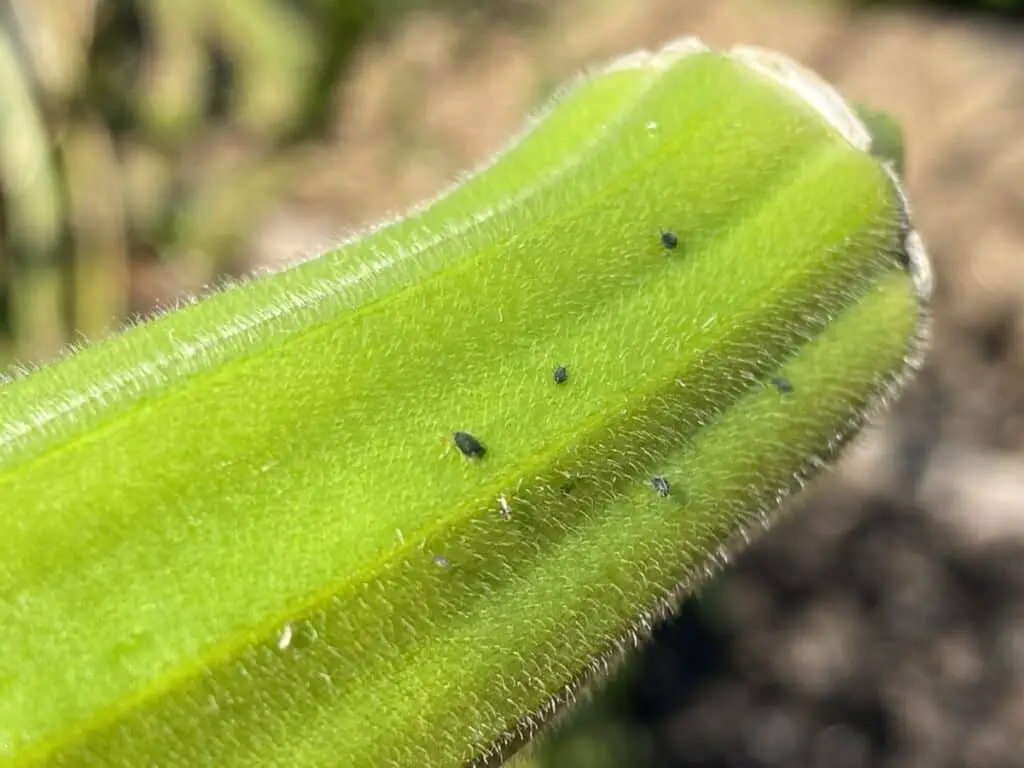
The real problems begin when you start noticing clusters of aphids as well as ants. The clusters mean that aphids are reproducing quickly, and the population has the potential to get out of control.
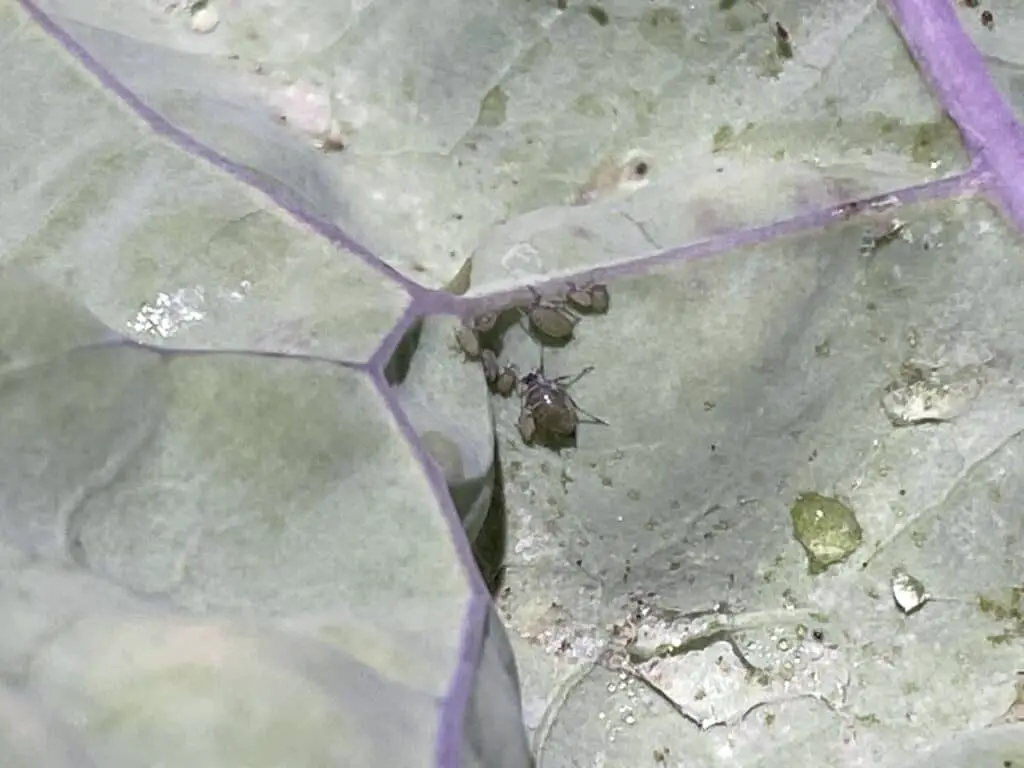
In terms of ants, I normally leave ants alone when I see them in my garden, but if you notice ants around the aphids, you’ll have cause for concern. Those ants are not your friends because they’ll try to kill off any beneficial insects (such as ladybug and lacewing larvae) that might otherwise eat or prey on aphids.
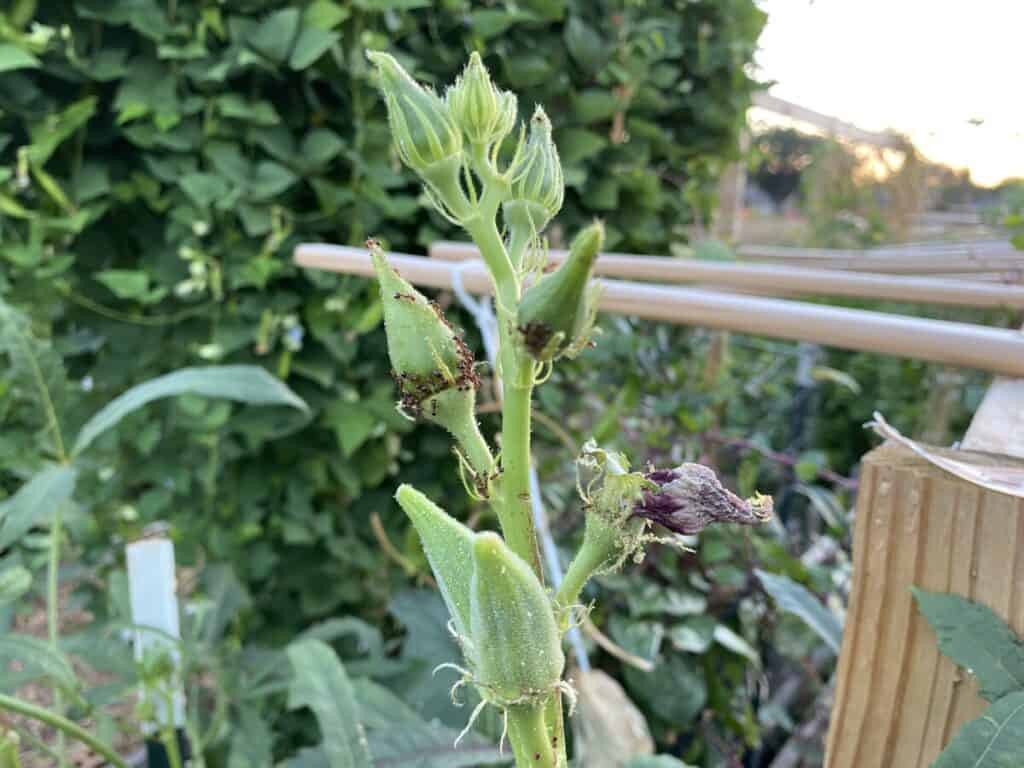
Simply put, if you notice clusters of aphids on a plant, you need to act quickly or else you’ll likely be composting or throwing away that plant sometime soon.
Will Aphids Go Away on Their Own?
You might be wondering if aphids will just go away on their own. Maybe they’ll simply leave, right? (I wish!)
Aphids will not go away on their own but will instead die off during winter while their eggs wait for spring. Unless steps are taken to stop the infestation, female aphids will reproduce asexually throughout the spring, summer, and early fall, ensuring the aphid population survives and grows.
One thing to remember about aphids is that they’re incredibly adaptive.
In the spring and summer months, female aphids will produce wingless nymphs, which result in the aphid clusters that you’ll see in moderate to severe infestations.
But as food gets scarce, female aphids will begin producing winged aphids so that the population can migrate from one plant to another.
As colder weather arrives, the femail aphids will no longer reproduce asexually but will instead mate with male aphids in order to produce eggs, which can survive the winter months.
This is why I’d highly recommend either composting or throwing away plants that have moderate to severe aphid infestations.
If the plant gets drained of its sap, the aphids will produce winged versions of themselves and spread to other parts of your garden. And if things are growing colder outside, you run the risk of aphids producing eggs that will lay dormant during the winter and then hatch in the spring, starting the cycle all over again.
The good news is this: If you catch an aphid infestation soon enough, all you’ll need to do is to spray the plant with soapy water or neem oil for several days, and you’ll stop the aphids before your infestation worsens.
Just remember, aphids will often hide on the underside of leaves. Be sure to spray your plant thoroughly so that you don’t miss any aphids or aphid clusters.
Can I Put Aphid-Infested Plants in the Compost?
When it comes to composting, it can be difficult to determine the best approach when it comes to infested plants. On the one hand, I want to compost as much of my garden material as possible because that’ll mean more great soil for gardening. On the other hand, I want to be careful so as not to accidentally infest my compost with pests or disease.
Plants suffering from minor to moderate aphid infestations can be safely composted since the heat of the compost pile will kill off both aphids and aphid eggs. Plants with severe aphid infestations should only be composted in hot compost piles that have temperatures exceeding 120° F (48° C).
In general, aphids struggle when temperatures outside exceed 90° F (32° C). These temperatures won’t necessarily kill them off, but extreme heat will slow them down considerably.
This is why it’s important to monitor your compost pile before putting aphid-infested plants in it. If your pile is hot, move aside some compost and place your aphid-infested plant as close to the hotter parts of the compost pile as possible.
If your compost pile is not at least 120° F (48° C)–or if your plant is suffering from a major to severe aphid infestation–you’ll be better off tossing it in the trash. There’s no sense in taking a risk if you don’t have to do so.
Of course, if you don’t have a hot compost bin on your property, you’ll want to throw away any plants that are suffering from aphid infestations before the aphids are able to migrate to a new part of your garden.
Will Plants Recover After Aphids?
If you’ve got aphids in your garden, you’re probably wondering if your plants can withstand the infestation.
Plants with minor to moderate aphid infestations can recover if they’re treated with natural insecticides such as neem oil or soapy water sprays. Plants with more aggressive infestations might recover if treated regularly, but they’ll more than likely need to be composted or thrown away.
My biggest concern with aphids is not the immediate damage done to plant since, unlike other pests such as spider mites or caterpillars, aphids typically take more time to physically damage plants’ foliage and branches. My main concerns instead have to do with infestation spread and disease transmission.
Aphids are a global pests, and as I noted above, they’re able to adapt to environmental conditions in order to spread from place to place and survive cold winter temperatures. You won’t be able to keep them out of your garden, but you can stop them quickly if you act as soon as you notice their arrival.
What I don’t want is for one aphid-infested plant to function as a staging ground for further infestation.
Another thing to keep in mind is that aphids are notorious disease transmitters. Take green aphids, for example. The pea aphid has been known to transmit at least 30 different diseases. The green peach aphid is even worse: It can transmit 100+ diseases!
And if that’s not bad enough, both black aphids and white aphids are known to spread disease as well.
Simply put, you have no idea what’ll happen if aphids begin feasting on your plants, so the best approach to an aphid infestation is to treat them with natural insecticides as quickly and regularly as possible until you’ve stopped the infestation.
How To Get Rid of Aphids Naturally
There are many insecticidal products on the market, but I’m pretty fond of mixing my own simple aphid insecticides.
One of the best ways to kill aphids is to create a natural insecticide by mixing neem oil, a soapy emulsifier, and water. Neem oil will disrupt aphids’ biological processes and reproductive patterns and prevent them from causing further plant damage or transmitting disease.
The key with neem oil is to pay close attention to intervals and consistency. You’ll want to apply neem oil once every 5-6 days, typically in the late afternoon to avoid burning your plants. During the intervening days, you’ll want to apply soapy water sprays so as to avoid coating your plants in too much oil. The neem oil will be a more effective aphid killer, but soapy water will do just fine in between neem oil applications.
If you’d like to learn all you need to know about creating a powerful neem oil spray, check out the overviews I’ve provided in my articles on using neem oil to kill spider mites and on how to help plants recover from spider mites. These articles were written with a focus on spider mite infestations, but the advice is exactly the same for aphid infestations.
In fact, spider mites and aphids will often attack the same kinds of plants, so if you’re battling an aphid infestation right now, you can learn how to mix up a powerful neem oil insecticide that will stop both aphids and spider mites.
If you’re short on time or you’ve simply got a smaller aphid infestation on your hands, you can also purchase several products that are effective at stopping aphid infestations:
- Captain Jack’s Dead Bug Brew: This will kill a variety of common garden pests, including aphids, spider mites, and thrips.
- Bonide Rose RX: This is for flower lovers in particular. It’ll kill garden pests while also protecting flowers against various fungal diseases.
- Diatomaceous Earth: DE, as it’s commonly called, will kill all kinds of bugs, including beneficial pollinators, so you’ll need to be careful with your applications. But when applied properly, it’ll work well.
